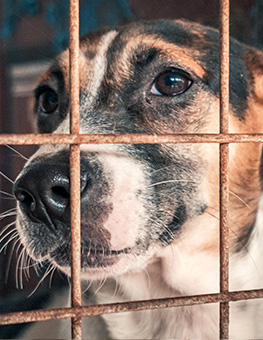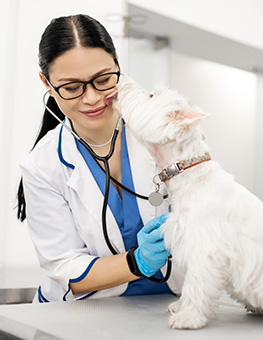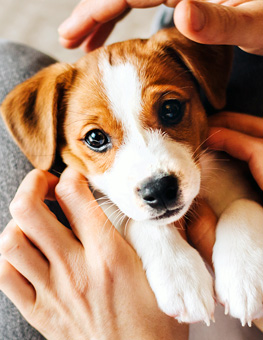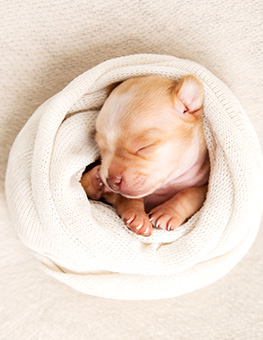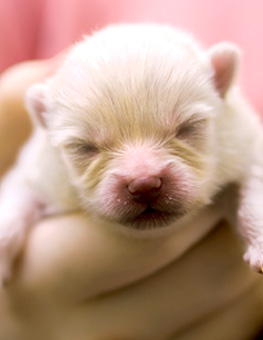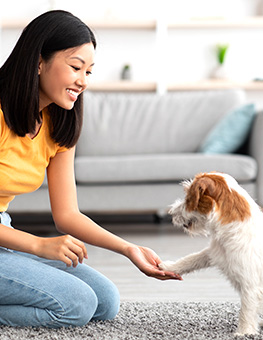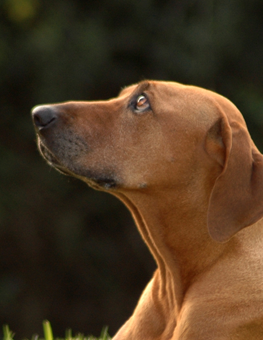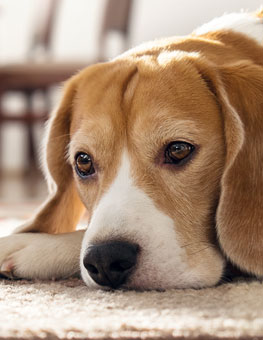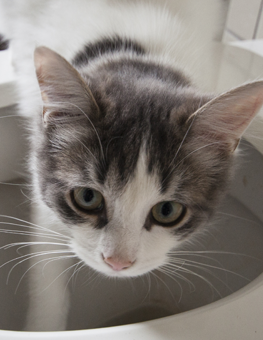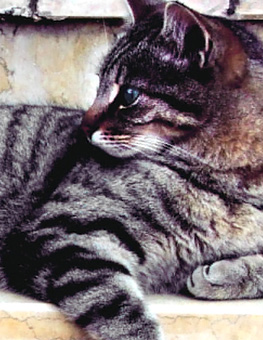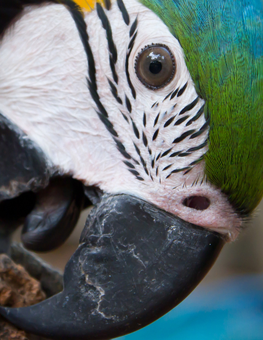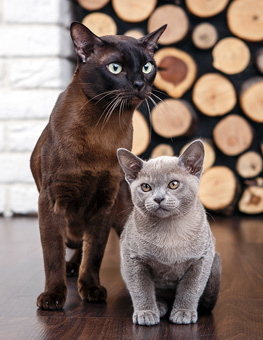Keep Your Dog Safe During the Holidays
Each year, thousands of dogs become victims of holiday-related accidents and poisonings.
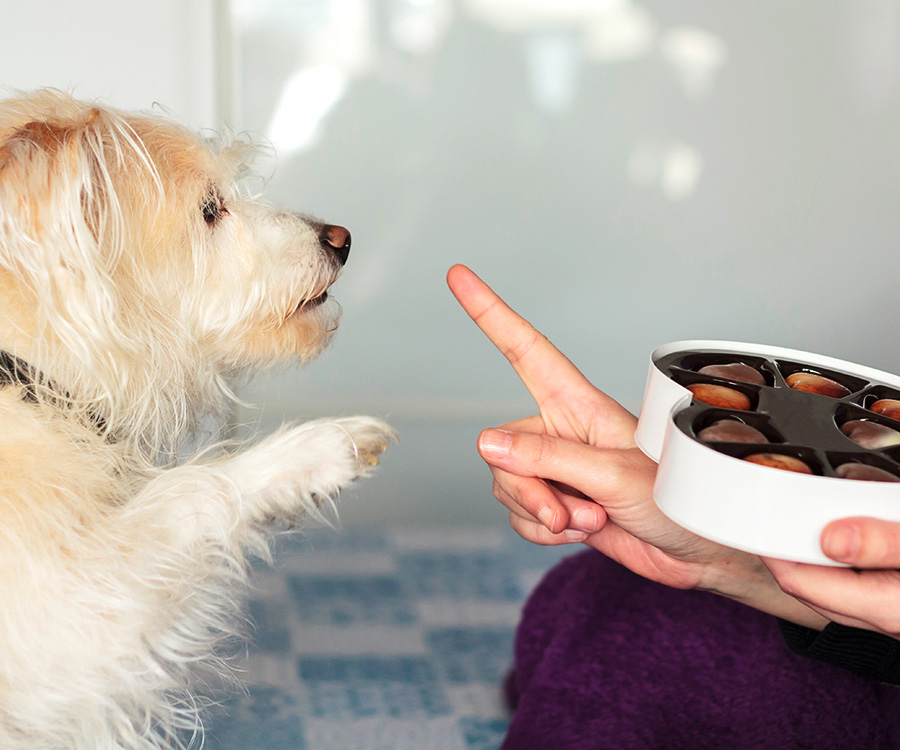

Keeping your dog safe sometimes means tough love such as keeping certain foods from him.
A shimmering tree, brightly wrapped gifts, hearty fare, and family gatherings make the holidays magical for you and your family. For your dog, however, these same joys can be hazardous to her health so it’s wise to take extra precautions during the holiday season. Here are some guidelines to help you and your pet celebrate safely.
Food: A Hershey’s kiss is a treat for you but it can be deadly to your dog because her metabolism is different. Symptoms of food poisoning can range from mild digestive upset to seizures, coma or death so be sure to keep these precautions in mind:
- Don’t leave food on your counters, especially during parties when she may be less supervised.
- Tell guests, including children, not to feed your dog food or table scraps; many guests have no idea that “people food” can be harmful.
- During dinner, keep your dog confined to another room or crated to help her avoid temptation. Soft, classical music and a favorite toy can be soothing if the noise and excitement make her anxious.
- Remove leftovers from the table after dinner. Put a tight lid on your garbage inside and outside your home.
Here’s a sample list of foods that can be toxic to your dog: Alcohol, Almonds, walnuts and macadamias, Apple seeds, Apricot pits, Baby food, Bones (meat, fish, or poultry), Candy containing, Xylitol, Cherry pits, Chocolate (especially dark and unsweetened baking), Coffee beans and grounds, Grapes and raisins, Hops, Mushrooms, Mustard seeds, Onions and onion powder, Peach pits, Rhubarb leaves, Soda, Tea, Tomato leaves and stems.
Plants: Many plants are toxic to dogs. Levels of toxicity range from mild to severe and can cause seizures, coma or death depending upon the size of your dog (puppies are more susceptible) and how much plant material is ingested. Here are a few common holiday varieties that can spell trouble:
- Mistletoe and Holly can cause moderate to severe toxicity.
- Popular holiday bulb kits, such as Amaryllis, Narcissus, Daffodil, and Crocus can cause severe gastrointestinal problems, cardiac arrhythmias, tremors
and convulsions. - Holly, Yaupon, Nandina and Pyracantha berries can cause tremors, seizures, coma and death.
- Poinsettia sap can irritate your dog’s eyes and stomach, and cause nausea
or vomiting.
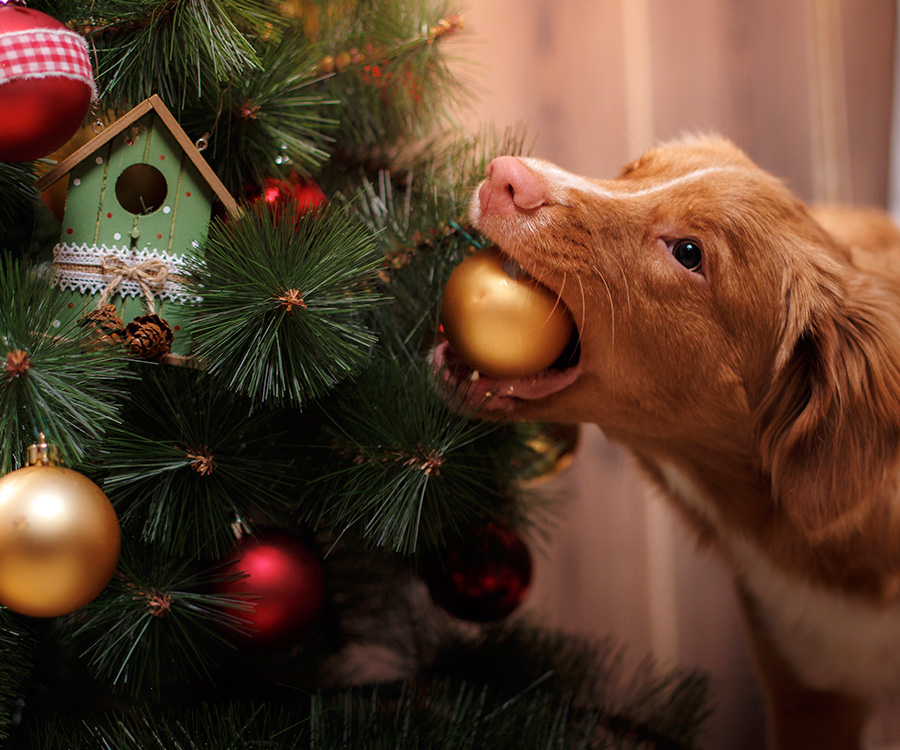

Holiday ornaments can be hazardous to your dog. For your pup's safety, consider keeping them off your tree.
Christmas Trees: Trees and trimmings pose numerous hazards:
- Needles are mildly toxic and can obstruct or puncture her gastrointestinal tract.
- Tree water often contains preservatives, pesticides, or fertilizers; use a covered dish for safety.
- Keep hot lights off the bottom of the tree; tree cords/wires can cause electric shock or mouth burns so make sure your dog doesn’t chew them.
- Keep edible or glass ornaments off your tree; they can cause gastrointestinal blockage or rupture.
- Traditional wire hooks can snag an ear or tail, or lodge in your dog’s intestine. Use lightweight twine, ribbon, or yarn to hang ornaments.
- Don’t hang tinsel. It can block her intestines.
- Keep wrapped gifts and packages off the floor; small toys or ribbons can choke her or get caught in her intestinal tract.
- Small pieces of aluminum or plastic from artificial trees can break off and cause intestinal blockage.
Overnight guest(s): Suitcases come packed with hazards – small items can choke, toothpaste can be deadly, and prescription and over-the-counter medications can be lethal. Avoid an accident by providing your guests with a bureau or locked storage area so they don’t leave an open suitcase on the floor.
Fast Action is Critical
If your dog has an accident, or you suspect she has ingested a toxin, Hartz strongly advises immediate action by calling your vet, local animal emergency hospital, or the ASPCA’s national animal poison control center at 888-426-4435. If possible, take a sample of the suspected toxin to your vet.



